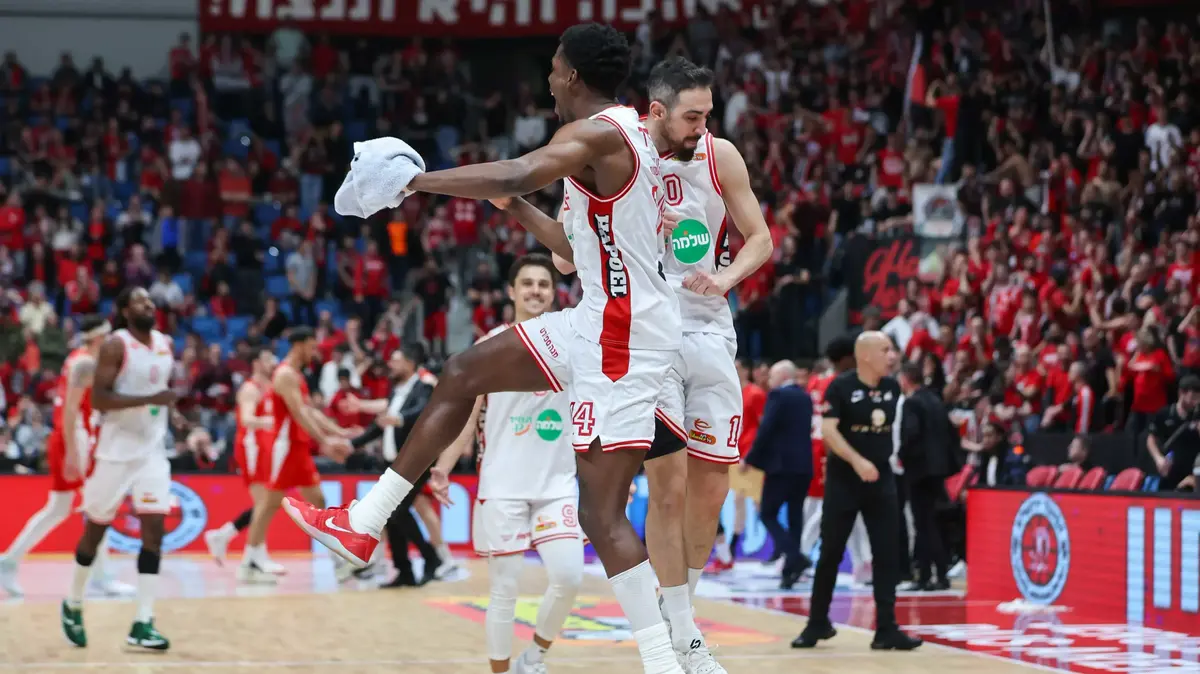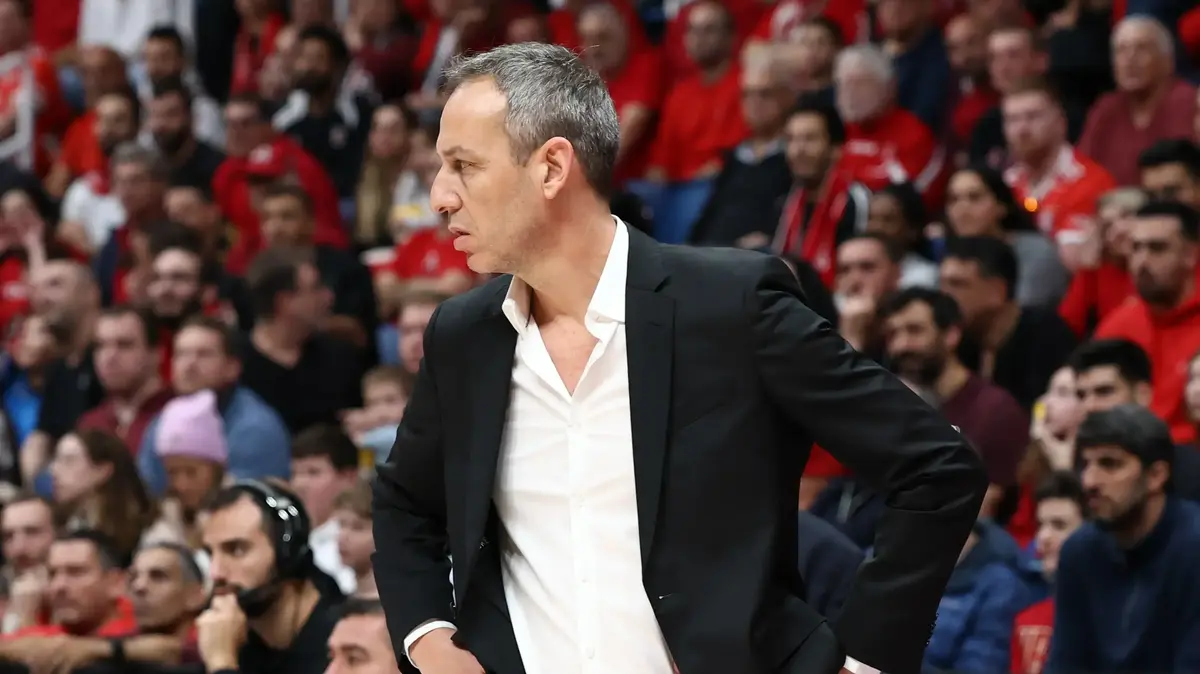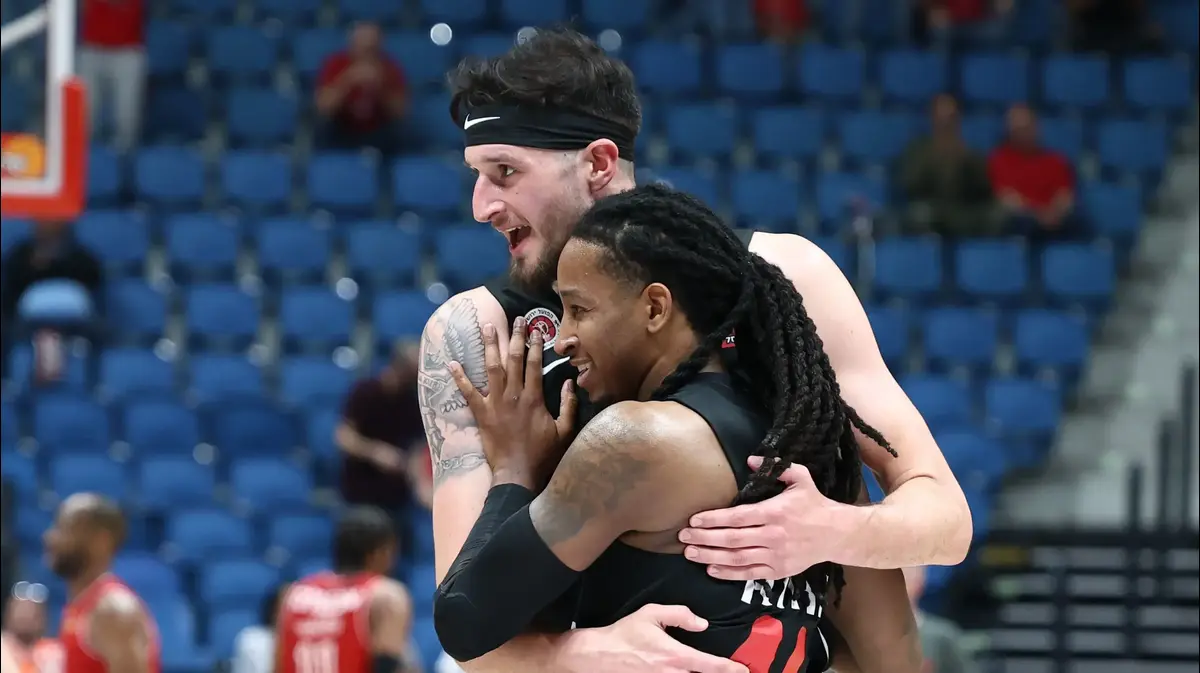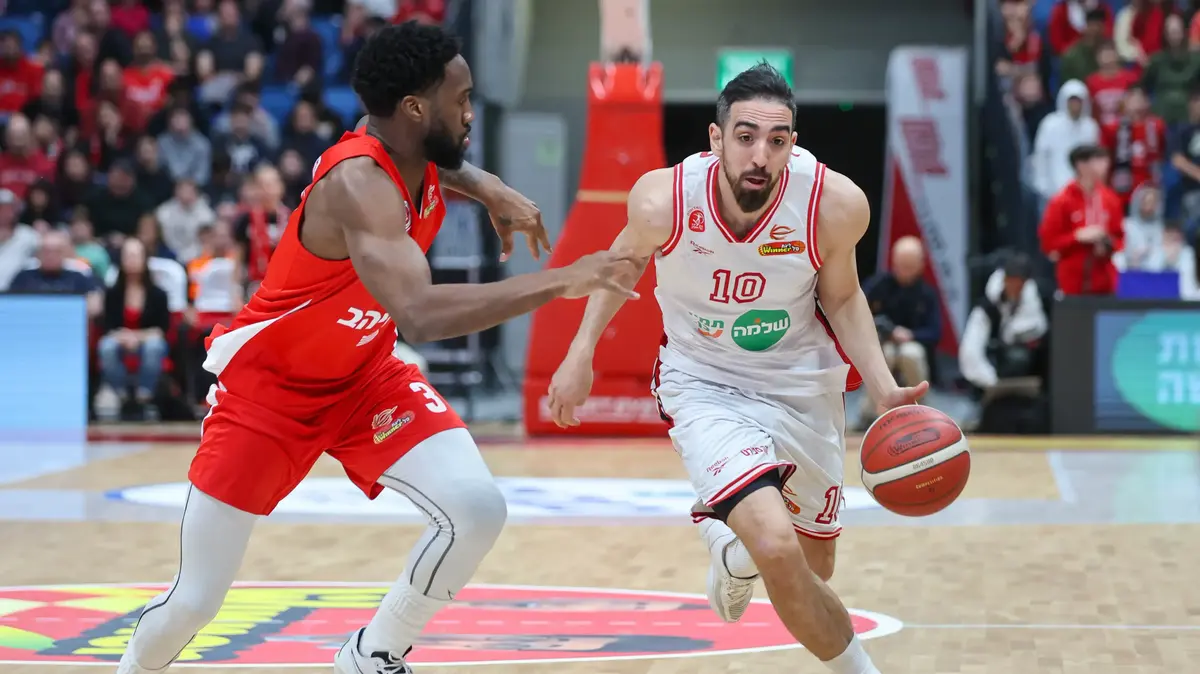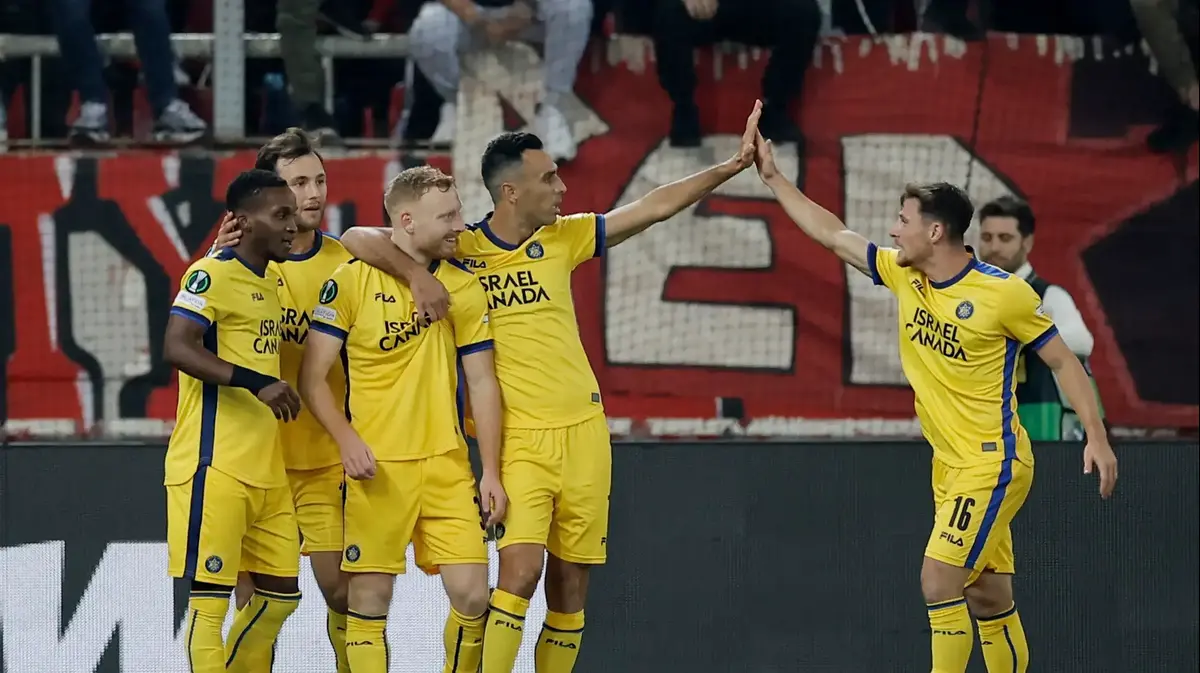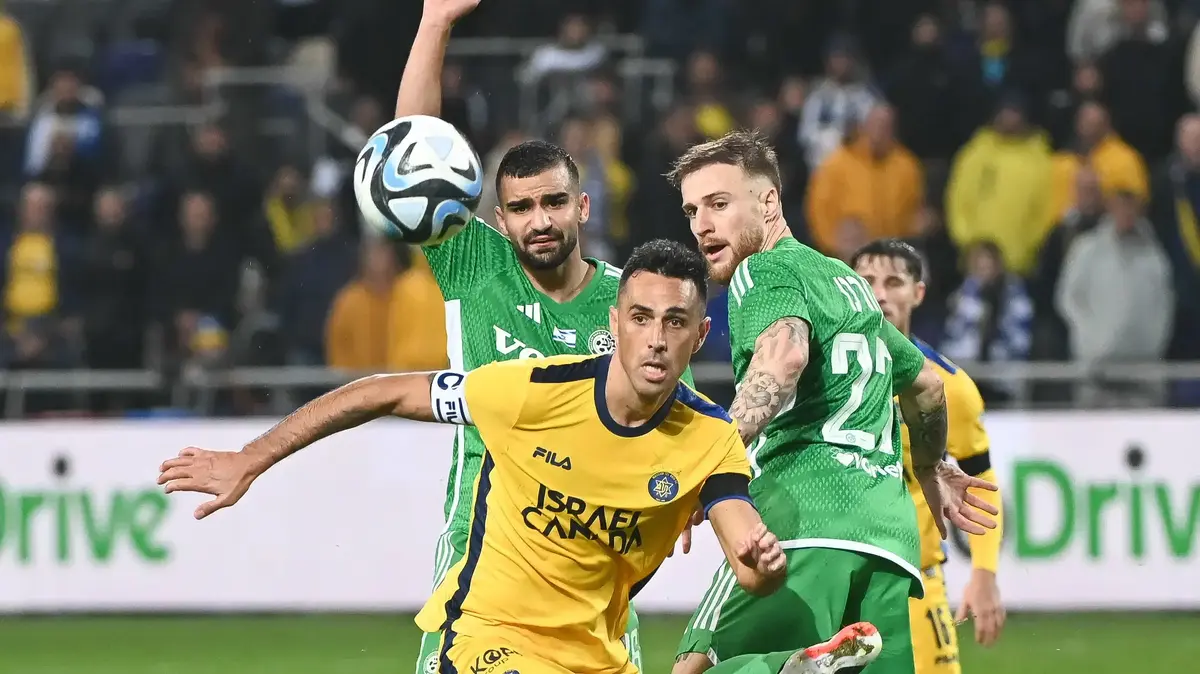For many years, Hapoel Jerusalem has been characterized by an attacking style of play that is exciting to watch, one that makes the team's fans enjoy time and time again the team's games on the offensive side, but not as an exceptional defensive team.
An exception in the landscape was the Italian coach Simona Fiangiani who led the team to its last championship in 2017 despite a slow and unwieldy style of play that yielded an average of 77.3 points per game only in the league, but provided receipts in the result test by winning the second championship in the club's history and reaching the semi-finals of the Eurocup.
Oded Ketch, who coached the team a year later, infused the team with his style of play and with him the Reds returned to impress on the offensive side with an average of 90.7 points per game during his time at the club, but did not shine defensively.
When Aleksandar Džikić signed in the capital and was appointed the team's coach, it was clear to everyone that he was building a team in his image and likeness.
If at first there was talk of choosing foreigners who would match his style and play for the team in a cohesive squad without big names, in the last few weeks when the team started to connect on the floor, you can clearly see the spirit of the Serbian coach reflected on the floor, on the defensive side.
Although Hapoel Jerusalem is not brilliant in attack as it has accustomed its fans and is only in tenth place in the average points it scores per game with 76.6 per game in the league, with only Hapoel Eilat and Hapoel Haifa scoring less than it, but it presents the best defense in the league by a significant margin from the ones behind it.
Hankins (in black) in the match against Maccabi Tel Aviv, photo: Oded Karni
The defensive improvement is felt on the field in the amount on which the opponents are stopped and was clearly expressed in the last round, when the Jerusalemites stopped Maccabi Tel Aviv, the best attacking team in the league, for 75 points, 20 less than the average of the Yellows before the round.
The beginning of the change was seen in the victory game in Rome against Hapoel Haifa, when Jerusalem stopped the locals for 57 points and Anthony Hickey, the hottest player in the league in those days, for 0 points in 36 minutes.
"We are a new team, and it takes time for us to connect. The more time we spend together and the more time we train together, we gradually see the improvement," said Džikić at the end.
Indeed, the significant improvement is also expressed by the numbers in the advanced statistics.
As a game method, Džikić believes in long and orderly attacks that slow down the tempo of the game and reduce the amount of possessions, which allows him to dictate the pace.
According to the advanced data analysis site 'Instat', Hapoel Jerusalem plays at the slowest pace in the league and makes 79.4 possessions per game.
For comparison, the average in the league is 86.7.
Even in the defensive index that reviews the weighted shooting percentages of the opponent against the Reds, an unusual figure is revealed - only 46.5% in two-point shots and only 40.8% from the field, both figures are the best in the league.
When you look at the team's average absorption per game, a figure that is also affected by the pace of the game and the number of possessions, the numbers stand out unequivocally.
This season, Hapoel Jerusalem scores 70.4 points per game in the league, first place in the defensive rating in the league, followed by Hapoel Tel Aviv in second place by a significant margin, which presents the second best defense in the league in terms of points scored and scores 78.7 points.
Another layer in the defensive philosophy of the group from the capital speaks of giving statistically less quality shots to the opponent freely even if the price will be in points in some cases, compared to preventing quality shots at all costs.
91% of the shots by Jerusalem's opponents are defined as contested shots (shots that the defender managed to challenge and try to interfere with).
Or Cornelius (in red).
Haganah Haganah, photo: Maor Alxalsi
Protection, protection, protection
As part of the defensive method, Džikić's players allow the opponent to throw almost freely the mid-range shot (20% of the shots taken against them in the game), a half-distance shot that was very common in the past but proved to be statistically ineffective, while under the basket there is naturally the percentage of the shots will go in in higher numbers, the Reds crowd the paint and allow the opposition to score in only 45% of this area.
The Reds stop their opponents at only 30.9% percentage in shots for three, and when the opponent takes a shot from the dribble the percentages even drop to only 25%, allowing 0.86 points per move, with the average in the league standing at 0.945.
Another motif in the philosophy of the Serbian coach talks about preventing the opponent from giving easy points in a burst and as a result his players are careful not to lose the ball with unbalanced passes, losing only 11 balls per game, the second best figure in the league.
In the past, when they used to measure the quality of defenses, they checked the number of fouls they committed as a measure of physicality, whether the players were 'beating' in defense.
However, today in the age of analytics in sports it can be seen that there is no clear connection between the nature of the defense and the number of offenses it commits.
In the first two games in the league that the Reds lost, they allowed the opponent to throw 22 and 28 free throws respectively, a very high figure that indicates the lack of coordination in the defense.
In the four following games, they allowed the opponents to reach the penalty line 16,11,12,17 times, which indicates the defensive coordination that is being built and is gradually improving.
In the first two league losses, the team suffered 80 and 83 points, since then they have suffered 60,68,57,70,75.
Needless to say, she won all five games with a 66 ERA.
When Or Cornelius was asked at the end of the victory over Maccabi Tel Aviv about the team's ability on the defensive side, he simply replied: "It's thanks to the coach, he demands a lot from us and we work hard in training for that."
Tonight you will be waiting for the Danish team Bakken Bears when everyone already knows in Jerusalem - the key to victory is in defense.
were we wrong
We will fix it!
If you found an error in the article, we would appreciate it if you shared it with us


